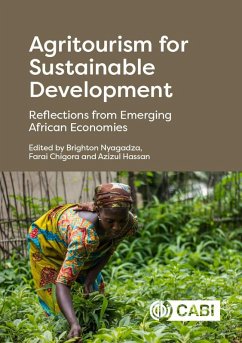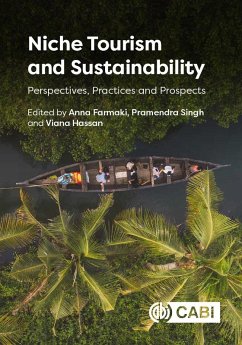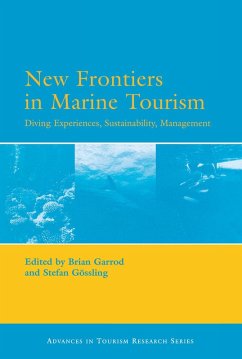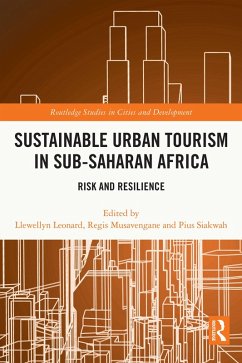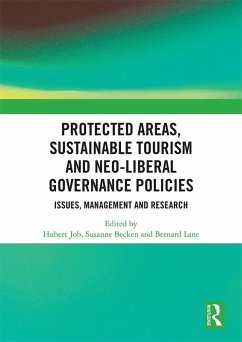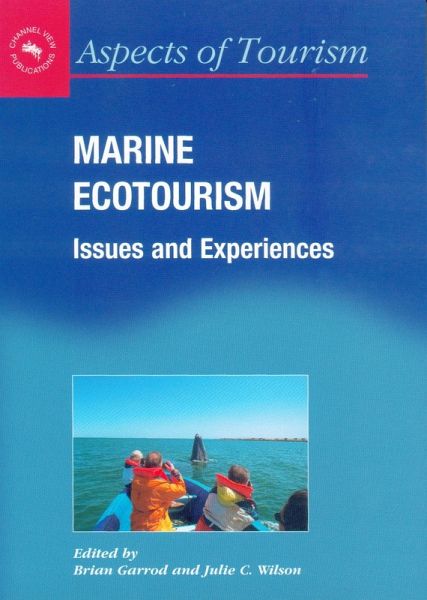
Marine Ecotourism (eBook, ePUB)
Issues and Experiences
Redaktion: Garrod, Brian; Wilson, Julie

PAYBACK Punkte
6 °P sammeln!
Marine ecotourism is a major growth area within ecotourism, itself a rapidly expanding area within tourism as a whole. The activity has been attracting increasing attention, both from the popular media and from professionals and academics with an interest in tourism's potential to contribute to sustainable development. However, there is a growing consensus that far too often the term has been used merely as a tool for capitalising on the good intentions of tourists, without the industry itself having to make fundamental changes to their products or to the way they go about their operations. Th...
Marine ecotourism is a major growth area within ecotourism, itself a rapidly expanding area within tourism as a whole. The activity has been attracting increasing attention, both from the popular media and from professionals and academics with an interest in tourism's potential to contribute to sustainable development. However, there is a growing consensus that far too often the term has been used merely as a tool for capitalising on the good intentions of tourists, without the industry itself having to make fundamental changes to their products or to the way they go about their operations. This has often been to the detriment of local environments, economies and host communities. Yet the ideal of ecotourism, as it is properly understood, is to present local communities with a sustainable development alternative one that works to the benefit of local ecosystems, local economies and local people. The purpose of the first section of this book is therefore to introduce the concept of marine ecotourism and to draw out some of the key issues involved in ensuring that marine ecotourism is developed in a genuinely sustainable manner. The second section then discusses some practical experiences of planning and managing marine ecotourism from around the world, identifying common problems and discussing what might constitute good practice in addressing those problems.
Dieser Download kann aus rechtlichen Gründen nur mit Rechnungsadresse in A, D ausgeliefert werden.





